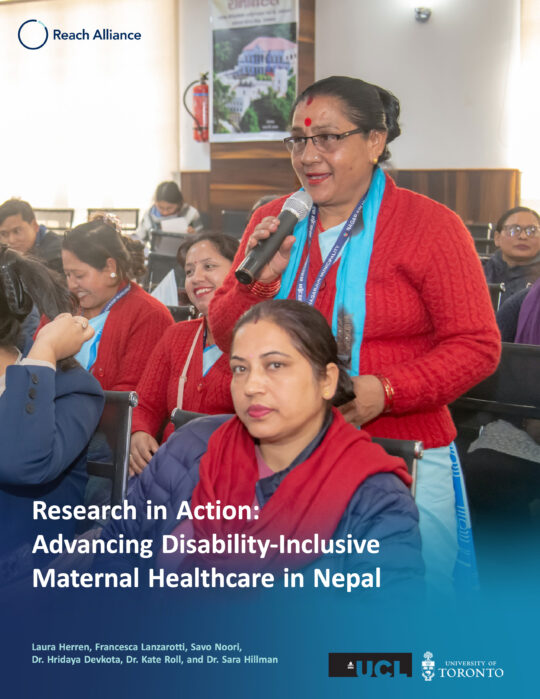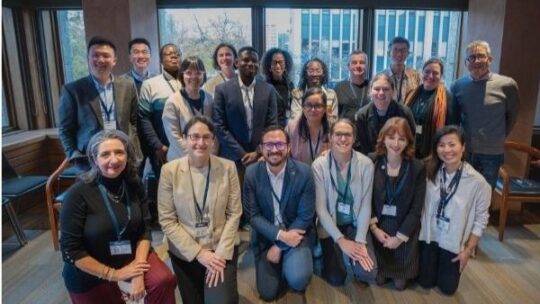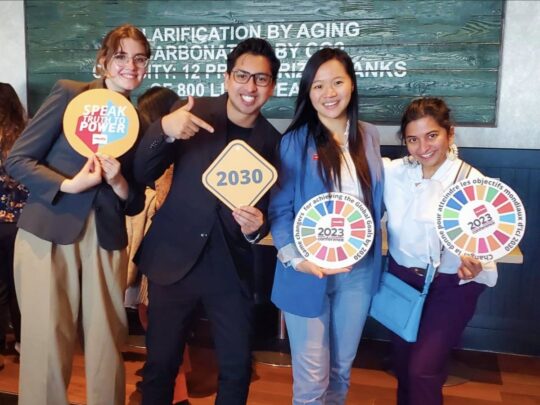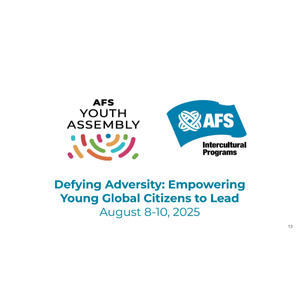News: Alumni, Latest News
Meet Deveney Bazinet of Team United Kingdom 2021-22: Accessing Maternal Healthcare in a Hostile Environment
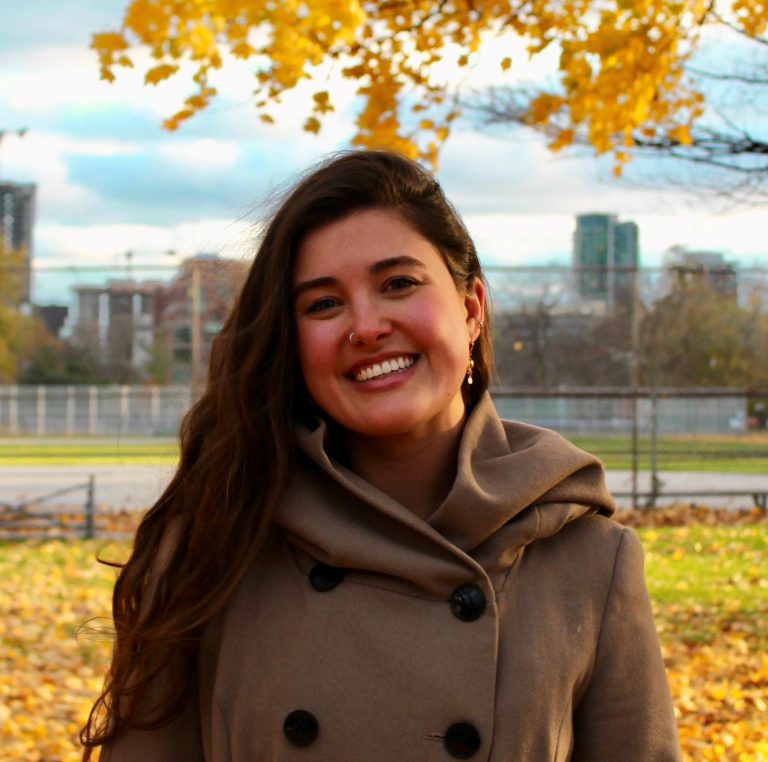
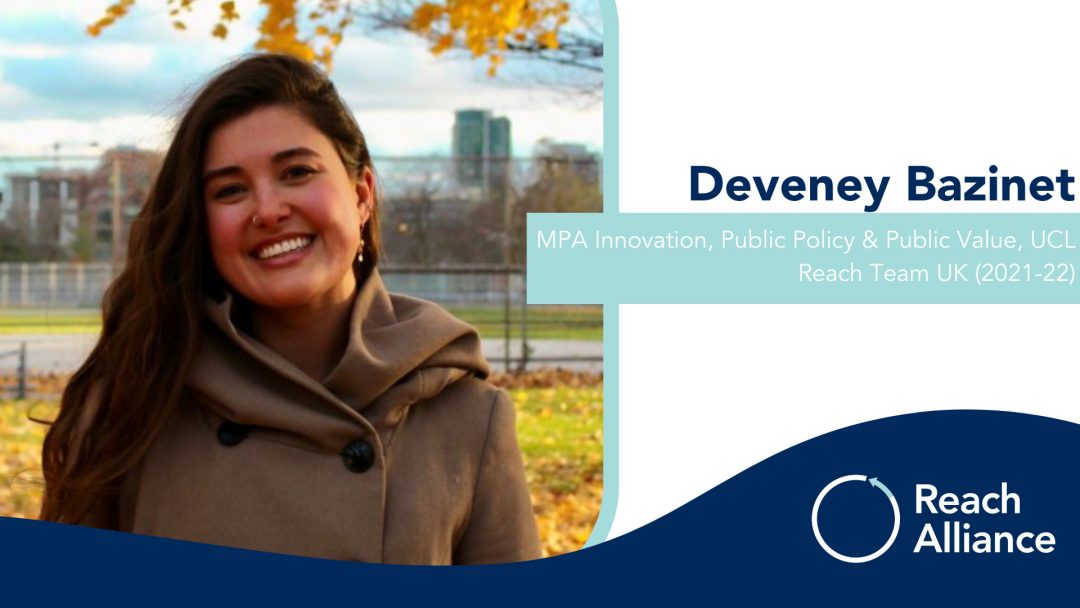
Meet Deveney Bazinet (MPA, Innovation, Public Policy & Public Value) from Team United Kingdom
You recently graduated with an MPA in Innovation, Public Policy and Public Value at the University College London. Can you tell us more about what made you apply to the Reach Alliance as an MPA student?
My MPA program emphasized the importance of translating research insights into innovations in policy and governance to address our most urgent societal challenges. I applied to the Reach Alliance for the opportunity to improve my research capabilities and be part of a project that generated insights and recommendations for changes to services, programs, and policies that could meaningfully improve health outcomes for migrant groups. I was also excited to be part of a project that would ground me in the experiences of those living in the London borough of Camden, my home for the duration of my degree.
As a recent alumnus, how will your experience in Reach inform your career path or opportunities you seek?
With my MPA completed, I am seeking out opportunities in climate policy and governance, with a specific focus on the Just Transition in Canada. My experience as a Reach researcher highlighted the importance of engaging directly with those most impacted by policy decisions at all points in the policymaking process – from design, to implementation, to evaluation and feedback – in order to mitigate negative outcomes for the most vulnerable. As a result, I am looking for roles that focus on community participation and would allow me to talk to people directly who will be most impacted by the green transition.
What takeaways or skills [personal or professional] did you gain from your Reach experience that you are/will be applying to your work or study?
Many of the opportunities in the policy and governance space require strong research, project management, and team building capabilities, which are skills I improved upon during my time as a Reach researcher. Participating in the case study not only gave me greater confidence in these areas, I also rediscovered a passion for the research process, particularly engaging in interviews and working within the team to share insights and identify patterns. Being part of Reach reinforced what so much of my academic and professional experience has taught me: there are endless possibilities for learning when we listen to each other.
What is your fondest memory from your experience in Reach?
My fondest memory from my Reach experience was not a single moment, but the many opportunities I had to engage with and listen to people from different disciplines and backgrounds. This included all that we learned from the healthcare professionals and community organizations supporting migrant populations in the UK, as well as the work we did within our research team. It was a wonderful thing to be in a group of people who wanted to produce meaningful work and support each other in the ups and downs over the course of the year.
What tips or words of encouragement would you give to someone who is interested in applying to the Reach initiative?
Participating in the Reach Alliance was a highlight of my graduate experience. For those interested in applying, my recommendation is to be open to learning new things and exploring topics outside your initial areas of interest or expertise. I learned a lot from my colleagues in other disciplines, and focusing on issues of immigration and healthcare has also informed my thinking on different facets of climate policy. Also, come prepared to do the work of team building and collaboration – it is not always easy, but there is a lot joy of and insight that can come from a strong team.
Last October, you attended the first Reach Research Conference at the University of Toronto and participated in a synthesis panel on ‘Health and Wellbeing’, can you share more about your experience and insights from your discussion?
The panel was a formative opportunity to work with other Reach researchers, to learn from their experiences and to draw out common themes. One insight was the importance of community-driven solutions for wellbeing. Another insight was the complex role that governments can play in access to quality healthcare. As an MPA student, this insight was of particular interest: state capacity is essential in supporting the most vulnerable over the longterm, but even developed states can undermine health outcomes when policies are restrictive, which was what we saw in our case study on migrant maternal health in the UK.
As a recent graduate with years of experience in sustainable development, what were some key takeaways from the Conference that you believe can be applied to your field and support the achievement of the SDGs?
The Conference reinforced a key learning from my time working in sustainable development: communities must be at the centre of any policies and programs that seek to achieve the SDGs, and their wants and needs must be what informs the collaborative efforts of governments, non-governmental organizations, and the private sector. I was also inspired to see so many of the 2022-2023 case studies have an environment and climate change focus. Our ability to achieve the SDGs and ensure their impact over the longterm now hinges on climate action – it is the thread that affects and connects all societal challenges.
